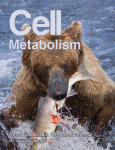
A study that looked to hibernating bears to understand the mechanisms behind diabetes has been retracted because an author based at the biotech company Amgen “manipulated specific experimental data” in two figures.
According to the The Wall Street Journal, Amgen discovered the manipulation while reviewing the data following publication of the paper,”Grizzly bears exhibit augmented insulin sensitivity while obese prior to a reversible insulin resistance during hibernation.” Published in Cell Metabolism last year, the paper has been cited 8 times, according to Thomson Scientific’s Web of Knowledge.
A press release from the journal last year — coverage in Science and Nature followed — explained the purpose of the study:
While diabetes rates are on the rise and are having serious effects on millions of people’s health, researchers studying grizzly bears have now discovered a natural state of diabetes that serves a real biological purpose and is also reversible. Investigators reporting in the August 5 issue of the Cell Press journal Cell Metabolism note that grizzly bears are obese but not diabetic in the fall, become diabetic only weeks later in hibernation, and then somehow become “cured” of diabetes when they wake up in the spring. The research reveals how natural biology, through evolutionary experimentation, can teach us new things about how animals naturally cope with conditions that would cause disease in humans.
And here’s the retraction note, which details the study’s problems:
This article has been retracted at the request of the authors.
Amgen requested the retraction as an outcome of an internal review where it was determined that one of the Amgen authors had manipulated specific experimental data presented in Figures 1 and 3. Because of data manipulation, this author is no longer employed by Amgen. The authors at Washington State University and University of Idaho are confident that the physiological data generated for this manuscript are accurate and representative of the true metabolic responses of these grizzly bears and are currently repeating the mechanistic portions of the study. Amgen deeply regrets this circumstance and extends their sincere apologies to the scientific community.
We don’t know which author manipulated data — a total of six were from Amgen. According to the WSJ:
Neither Amgen nor the university researchers would identify the scientist, who has been fired.
However, one of the Amgen authors said he had been “let go” for trouble “on another matter,” according to the WSJ:
The senior author was Kevin Corbit. Dr. Corbit said he was let go from Amgen for fabricating research “on another matter.” He said he fabricated that data to help a co-worker in what he said was an isolated incident and a regrettable decision.
The WSJ talked to some of the other authors on the paper:
Lynne Nelson, one of the paper’s lead authors who is a professor of cardiology at Washington state, said its bear-research center was stunned to learn of the doctoring from Amgen and is now repeating the research itself to confirm the findings.
“We did nothing wrong, and we’re still going to pursue the hibernation physiology in bears because we think it’s an important thing to do,” she said.
Personally, we find it interesting too. In 2008, Retraction Watch co-founder Ivan Oransky — who is a big fan of bears — reported on what we can learn about osteoporosis from their hibernation in, as it turns out, The Wall Street Journal.
Hat tip: Rene Malenfant
Like Retraction Watch? Consider making a tax-deductible contribution to support our growth. You can also follow us on Twitter, like us on Facebook, add us to your RSS reader, and sign up on our homepage for an email every time there’s a new post. Click here to review our Comments Policy.